Smart Review | The Visual Edge
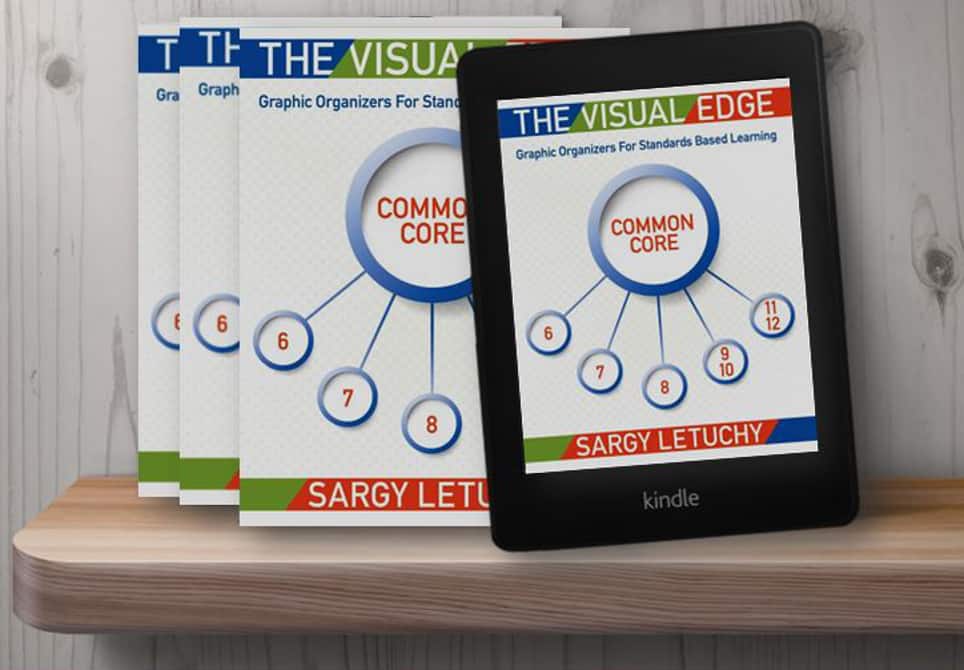
How am I going to teach over 60 standards in a school year?
How can I engage students in deeper learning connected to the Common Core State Standards?
How can I help my students visualize and organize their thoughts?
Sargy Letuchy, teacher at Bolingbrook High School in a suburb of Chicago, had these questions when the Common Core State Standards came out.
He realized that he needed a solution–one that addressed the necessary rigor of the standards and also students’ need for visuals and organization tools to keep track of their thoughts and research. He knew that his solution might also help other 6th-12th grade educators working to implement the Standards.
As a result, he decided to write The Visual Edge: Graphic Organizers For Standards Based Learning. Cover to cover, Letuchy provides ready-to-use resources and graphic organizers that can be used to address different standards.
In a chat we had about the book, Sargy shared with me that “the Visual Edge transforms Common Core from ambiguity to precision.” He also provided a couple of the organizers, including one he completed to illustrate how it could be used to address a Common Core English Language Arts Standard (below right).
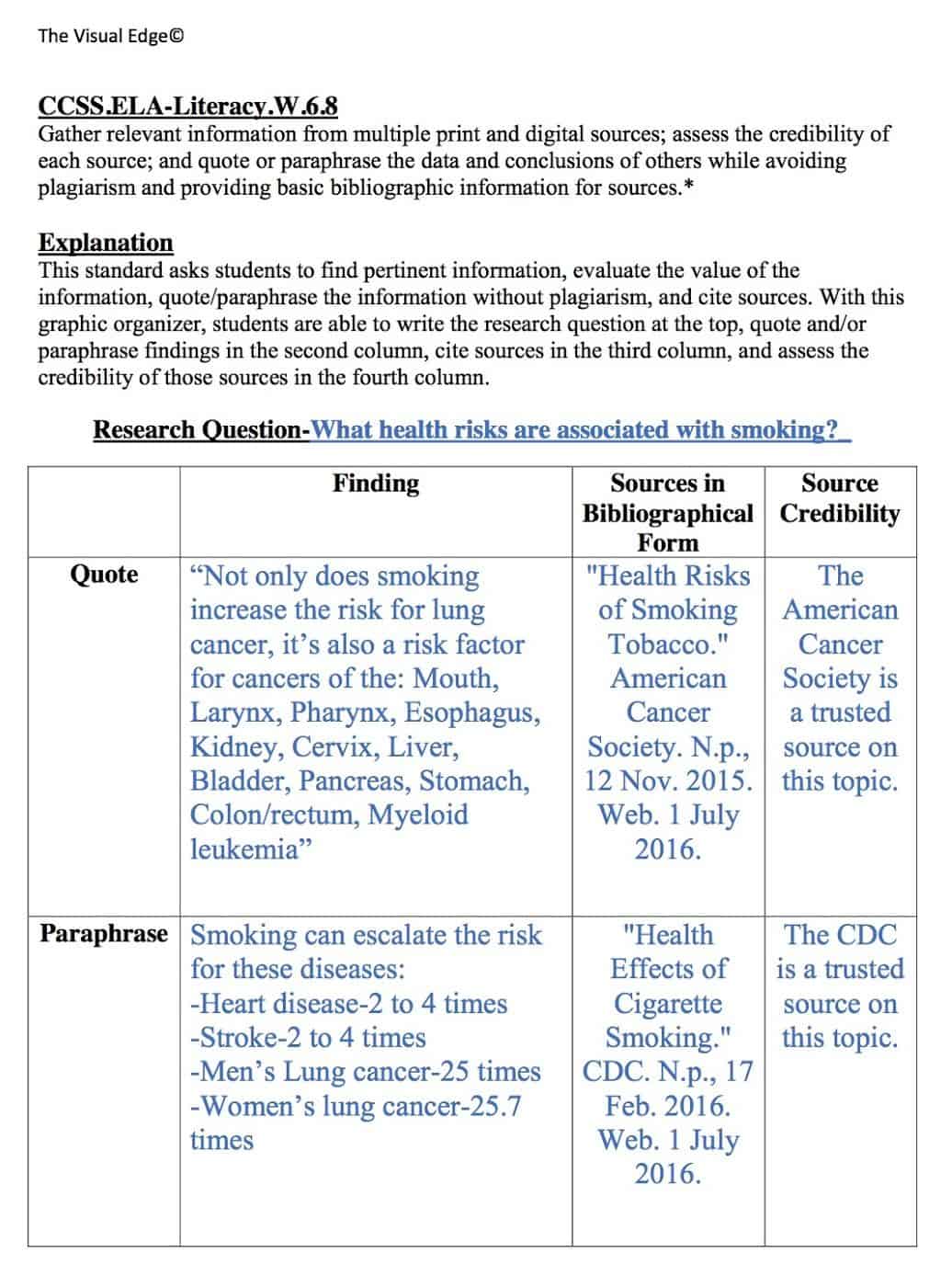 Implementation Ideas
Implementation Ideas
As I perused through the organizers, I immediately thought of several ways to implement them in the classroom:
Pre- or Post-Assessment
Many of visual organizers would be great to see what students already know about the respective standard and then could be used again as a post assessment to see what they learned over time.
Digital Portfolios
Students who complete the organizers could include them in their digital portfolios, helping them demonstrate throughout the year how they are meeting different Common Core State Standards.
Project-Based Learning
During the sustained inquiry phase of project-based learning, there are several organizers in this book that could be used to help them organize their research or investigation of a driving question.
Graphic Design Class
These visual organizers are a dream for students working on creating graphics. Students could make their completed organizer into an infographic or enhance them with images and art.
Blended Learning Classrooms
In a small group or station in a blended learning classroom, students could upload a copy of one of the visual organizers and convert it to a usable online form. Students could also find the information for their organizers online and then complete it by hand.
Take the organizer below as an example. Students are asked to look at primary and secondary sources about the same topic and identify a cohesive message about the idea or event. Students in blended learning classrooms could make an organizer like this online, share it with a classmate to collaboratively work on it and then virtually submit it to a teacher. Students in a graphic design class could then make a visual to illustrate the ideas they wrote on the organizer.
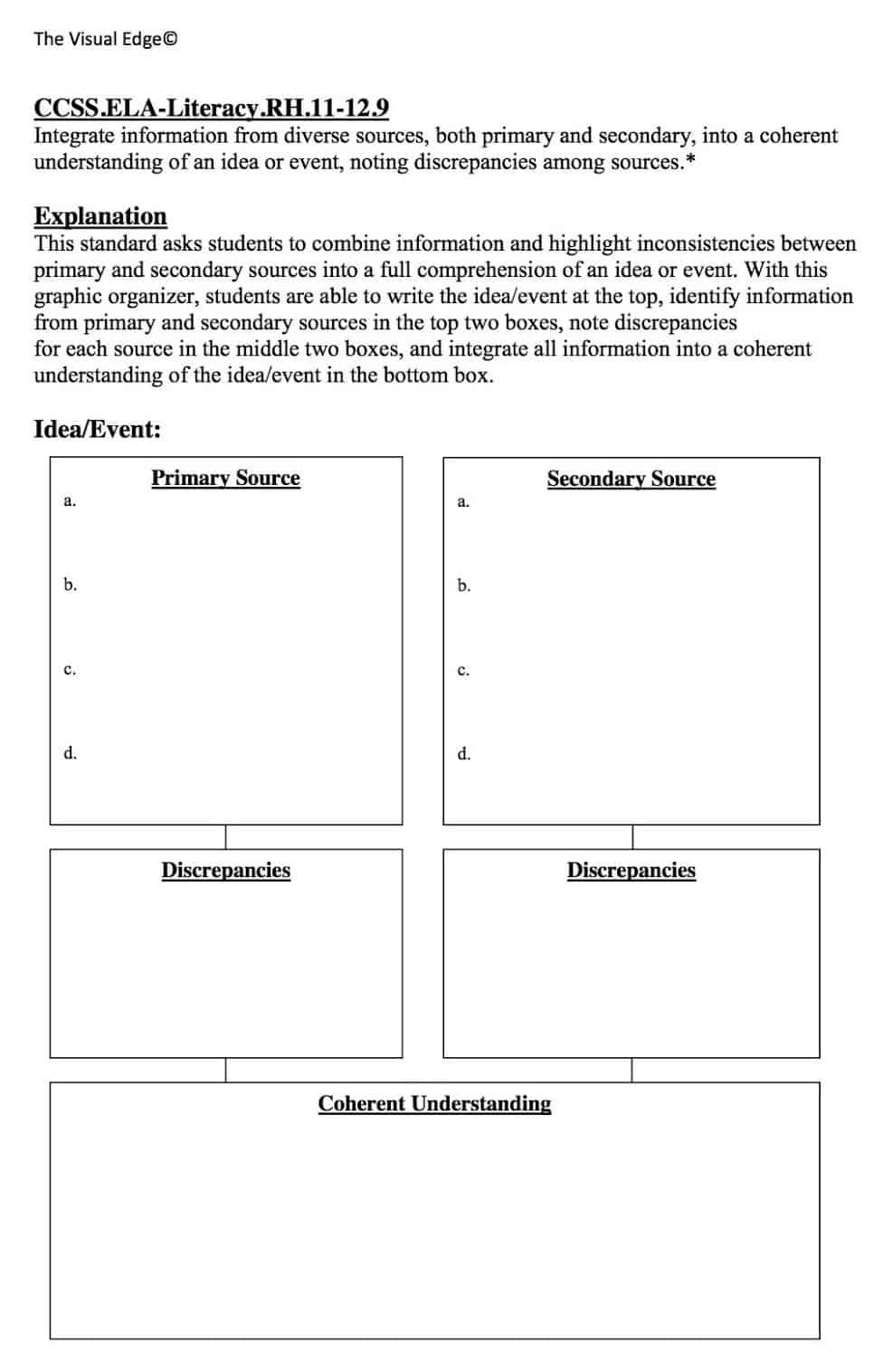
The book contains organizers for 6th-12th grade teachers in the following areas:
- Reading and Informational Text
- Reading Literature Text
- Writing
- Speaking/Listening
- Language
- History/Social Sciences
- Science/Technical
You can find The Visual Edge in paperback.
For more, see:
- Common Core: Better Standards, Conditions, Tools & Outcomes
- Smart Review | Tech Out Your Class: 6 Projects to Meet Common Core & ISTE Standards
- Smart Review | Transforming Schools Using Project-Based Learning, Performance Assessment, and Common Core Standards
Stay in-the-know with all things EdTech and innovations in learning by signing up to receive the weekly Smart Update.



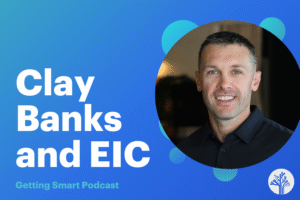
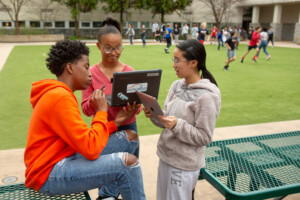
0 Comments
Leave a Comment
Your email address will not be published. All fields are required.